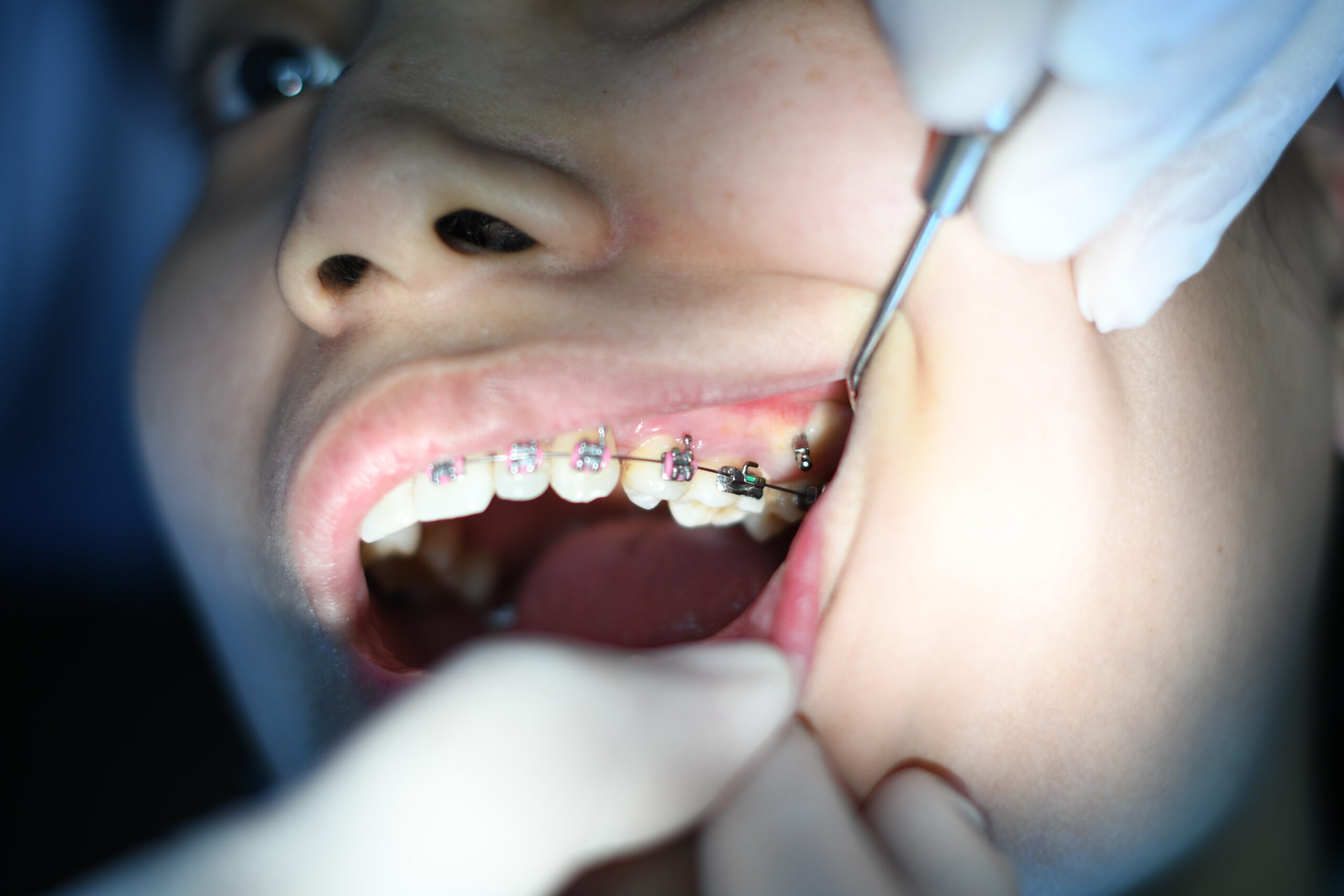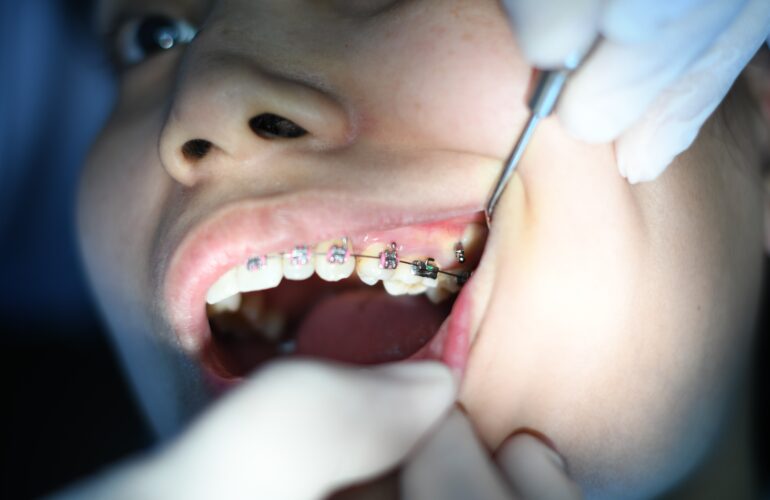Are you or a loved one about to embark on the journey of wearing braces? Whether for cosmetic reasons or to address dental health issues, braces can be a transformative experience. However, it may seem a daunting experience. But don’t let that hold you back. Let’s go through the essential information, tips, and recommendations for making your orthodontic journey as smooth as possible.
People may wear braces for straightening teeth, correcting a misaligned bite, or addressing other orthodontic concerns.
There are various options available, such as traditional metal braces, ceramic braces, clear aligners (like Invisalign), and lingual braces.
It is a long & tedious process. It starts with initial consultation with an orthodontist that leads to the creation of a personalized treatment plan. In the process there are multiple X-rays done, molds are made, and any necessary extractions done.
The First Days with Braces
During the first few days with braces, it’s completely normal to experience some adjustments and sensations in your mouth as you adapt to this orthodontic treatment including potential discomfort and dietary restrictions. Our orthodontist will provide you with orthodontic wax and, possibly, relief gel. These can help alleviate irritation caused by the braces. In all of this continue to brush and floss your teeth diligently.
Remember that the initial discomfort and adjustments are temporary. Your mouth will gradually adapt to the braces, and the soreness will subside. Over time, you’ll become more accustomed to speaking and eating with braces.
Maintaining Oral Hygiene
Maintaining good oral hygiene is crucial. Be prepared to spend a bit more time brushing and flossing around the braces to prevent food particles from getting trapped and causing issues like cavities. Continue to brush and floss your teeth diligently. Your orthodontist will provide guidance on using special tools to clean around them effectively.
Speech Changes
Your speech may be affected temporarily. You might notice some difficulty pronouncing certain words. With practice, your speech will improve as your mouth adjusts to the foreign body in your mouth.
Dietary Restrictions
Our orthodontist will advise you on foods to avoid, such as hard, crunchy, and sticky items, as they can damage the braces or get stuck. Opt for brace-friendly alternatives and maintain a nutritious diet.
Wearing Bands or Elastics
Like we mentioned earlier that dentists will customize a plan according to your needs, hence depending on your treatment plan, you may be required to wear rubber bands or elastics to correct your bite. Follow your orthodontist’s instructions regarding when and how to wear them.
Remember that the initial discomfort and adjustments are temporary. Your mouth will gradually adapt to them, and the soreness will subside. Over time, you’ll become more accustomed to speaking and eating with braces.
If you experience severe pain, broken wires, or other issues that you can’t manage at home, don’t hesitate to contact our expert orthodontists. We are here to support you throughout your orthodontic journey, ensuring you achieve the desired results while maintaining your oral health and comfort.




